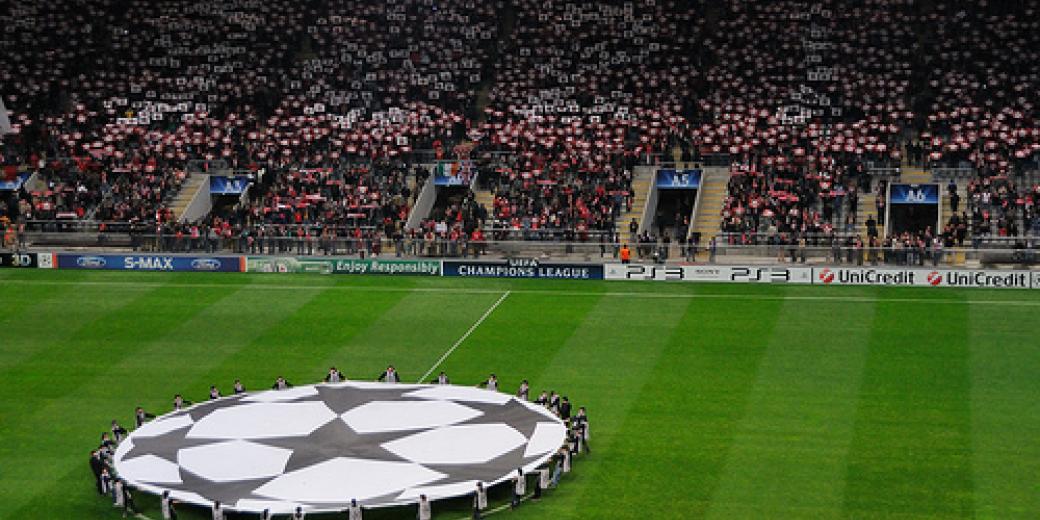
A recent report from a UEFA event in Geneva has the footballing world buzzing over potential systematic changes in European domestic leagues. The governing body that oversees European football recently announced plans to look into combating problems that are seemingly ruining the modern game. One of the most important issues the group of 100 plus delegates discussed was that of economic stability, specifically the growing questions surrounding the financial integrity of club football.
What is this system that UEFA is hoping to clean up? With the current rules in place, anyone with a large sum of money can seemingly buy a team. But why is this a problem and does not this happen all the time here in America? Yes, in the United States, takeovers happen sporadically. The difference in Europe is that once the team is in control of an owner, that individual can spend any amount of cash fiscally imaginable on every aspect of the club. There are no guidelines or system of checks and balances. These finances extend anywhere from a new stadium, board of directors, and most importantly and controversially, players. To put this into perspective, in America, players are traded and or signed off of free agency, whereas in Europe, players are bought for fees known as "transfers". The issue UEFA has with this is twofold. One, the richest owners can purchase the most expensive, best players, which only contributes to the increasing gap between rich and poor clubs. Secondly, domestic talent is not being developed, but instead, finished products are being bought from abroad. This is ruining some countries youth development systems and structures. Another key issue for the governing body is addressing the exorbitant wages most super stars have relative to, not only players on their own squad, but to players in similar leagues on less lucrative teams. UEFA intends to implement a policy in which clubs cannot repeatedly spend more than their income. Many clubs with ridiculously rich owners are actively ignoring aspects of business that would make most levelheaded people cringe, such as turnover and profit. I recently wrote an article condemning the spending of Manchester City. These new claims by UEFA are extremely exciting to the knowledgeable football fan for a reason. Ideally, European football will be played on a more level playing ground in a variety of aspects. This week, I decided to analyze and respond to a post by Bleacher Report author Stefan Vasilev. His intriguing write-up is titled, "UEFA's Newly Considered Regulations in Favor of Arsenal's Policy." I responded and commented on Mr. Vasilev's thought-provoking article which can be found by following the link below.
"UEFA's Newly Considered Regulations in Favor of Arsenal's Policy."
Comment
Mr. Vasilev,
I was more than pleased when I stumbled across your piece on UEFA's Financial Fair Play workshop. As an avid football fan and fellow Gunner, I find this topic to be one of the more riveting and pertinent debates in the modern game. You do extremely well to convey and outline the various points recently discussed in Geneva. You are right to question the "rich people who ignore the actual turnover of the club and take all financial issues in their own capable hands." I firmly believe that these men are ruining the game we have come to love and cherish. The likes of Roman Abramovich, Sheikh Mansour bin Zayed al Nahyan, and Florentino Perez (amongst many others) all possess good intentions and a solid interest in their specific teams, but do contribute to the growing inequality in contemporary football. These are extraordinarily savvy businessmen that have come to dominate their respective industries. In doing so, as you mentioned, they buy teams with little to no concern for the financial well being of their newly acquired clubs, nor the mindfulness for the wherewithal of the smaller teams in the league. What do you pose would happen if one of the aforementioned owners decided to abruptly sell the club? What kind of consequences might the team and players face? Do you pose there should be a salary cap similar to many American professional sports? UEFA is finally opening their eyes. In doing so, they are realizing the financial bedlams most of these clubs and leagues are experiencing. I only hope that it is not too late to correct this current mess.
Now that UEFA finally recognize the growing call for modification to the current system, the question of what can be done to improve the financial structure of European domestic leagues must be answered. In the article by UEFA, there is a claim that teams will need to "balance books" and will be given guidance on "salaries and transfer spending" as well as "sustainability of debt" and "to honour commitments on a timely basis." How might you suggest that UEFA oversee this and will they actually implement such a process in the near future? Most importantly I think this initiative by UEFA will address a few things that you failed to mention. By putting an emphasis on the future instead of the here and now, there is a hope to "stimulate long-term investment in youth development and upgrading facilities." Ideally, clubs will not only develop and maintain their domestic talent, but will create a strong financial basis for investment opportunities in new areas like stadia, sponsorship, branding, and marketing. But this begs the question, with income rising yet spending increasing at an even higher rate, how might these teams finally turn a profit in these struggling economic conditions? Surely UEFA cannot help each and every team, in every league, in a reasonable amount of time. I believe that this is an extremely big step from UEFA, but I question the financial rationality of such a wishful plan.